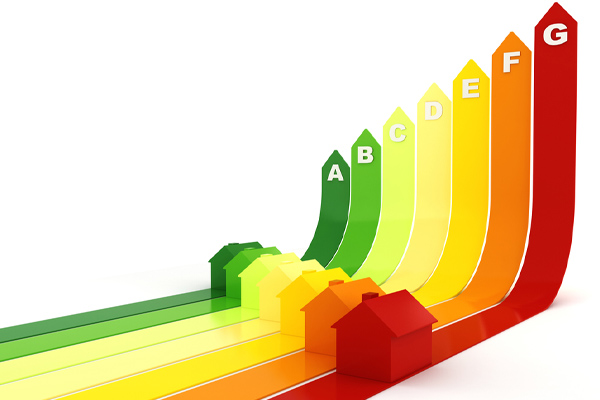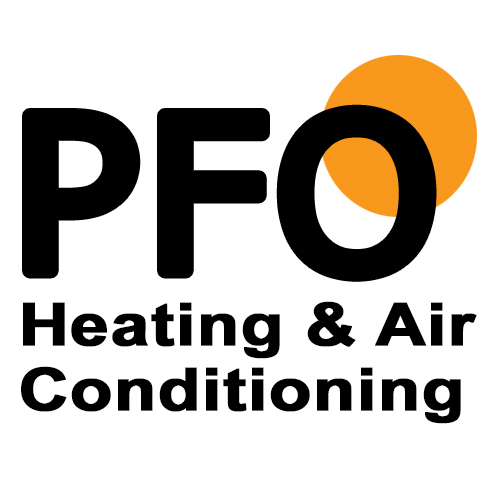
The SEER rating of an air conditioner is one of the essential factors to look into when facing an air conditioner replacement. It is an indicator of the HVAC system’s efficiency according to its energy consumption and the comfort you will receive. The US Energy Information Administration, or EIA, states that residential HVAC systems should have a minimum SEER rating of 14. However, the SEER rating requirements vary from one state to the other.
Read on to learn more about the SEER rating of your air conditioner.
What Does An Air Conditioner’s SEER Rating Actually Mean?
Contents
The Seasonal Energy Efficiency Ratio (SEER) rating is an HVAC system’s cooling output compared to its annual total energy consumption. The rating usually ranges from 13 to 21, and the system’s efficiency increases as the SEER rating gets higher.
Importance Of Air Conditioner SEER

Determining the SEER rating of the air conditioning is a must before installing it in your home. After all, it will provide you with many benefits, such as:
- Lower cooling costs: Efficient HVAC systems can achieve the set temperature using less power. With the right SEER rating, you have a highly efficient unit that can help lower your energy bills.
- Better comfort: Professional HVAC contractors state that a fully operational air conditioner can cool a four-bedroom house by 10 degrees Fahrenheit in three hours. This is also dependent on other factors like air conditioning age and size. However, the correct SEER rating will give you the home comfort you need.
- Eco-friendlier cooling: Highly efficient air conditioners produce fewer greenhouse gases. Therefore, a system with a high SEER rating is better for the environment.
What Is A Good SEER Rating?
SEER ratings of 14 and above are good. However, you need to find out which rating will work best to meet the needs of your home. This means factoring in other things like the home’s size, the occupants’ cooling needs, and the energy consumption rate you prefer.
A high SEER rating means it is highly efficient. Consult your local, trusted HVAC technician to help you determine the correct SEER rating for your needs. Remember that the unit’s efficiency is dependent on your home’s size. An air conditioner with a SEER rating of 14 can cool a two-room home efficiently, but you will need a higher SEER rating if you want the same for a four-bedroom house.
How An Air Conditioner’s SEER Rating Is Calculated

Calculating the SEER rating of your cooling system means dividing the year’s total cooling output by the total electric energy input. The cooling output can be determined by multiplying the British Thermal Unit per hour (BTU/h) by the number of cooling hours in a day. It is then multiplied by the number of days the cooling system worked in the year. This equation is exemplified below:
7,000 BTU/h x 14 cooling hours per day x 180 days per year = 17,640,000 BTUs per year.
If you have a 900,000Wh total energy consumption for the year, your SEER rating will be:
17,640,000/900,000 = 19.6 SEER
How To Find A SEER Rating On An Air Conditioner
According to the US Department of Energy, HVAC manufacturers need to indicate the SEER rating on their air conditioning units. They also need to put the Energy Star label on models that qualify for it. Therefore, if you want to know the SEER rating on your cooling system, find the black and yellow sticker typically placed on the condenser unit’s side. The SEER rating should be indicated in this sticker clearly.
You can also look at the air handler if you want to know the unit’s SEER rating. If these two options are unavailable, find the system’s manufacturer, serial number, and model number. You can use this information to look it up online or call the manufacturer to ask. Do not hesitate to ask a professional HVAC contractor to help you as well. Otherwise, it should be fairly easy to determine a system’s SEER rating unless the manufacturer didn’t label it appropriately.
What Are Mismatched Cooling Systems?

The outdoor and indoor units need to match to ensure optimum performance from your air conditioner. Therefore, manufacturers design indoor air handlers that are compatible with certain condensers. HVAC contractors should install matching pairs at all times. Unfortunately, this is not always the case, especially if you have an inexperienced technician helping you.
The size of the cooling system should also match your home. Otherwise, there could be a mismatch, and the unit could be either too small or too large for the space you have. An oversized air conditioner leads to short cycles that cool your home but does not sufficiently remove moisture in the air. It does not filter the air properly as well. Therefore, you will feel sticky and uncomfortable and will have poor indoor air quality. It will also consume more energy because the system turns on and off repeatedly.
On the other hand, a system that is too small will have extended cycles. It will also strain to achieve the set temperature, leading to faster wear and tear, discomfort, frequent repairs, and early breakdowns. Homeowners will also experience a significant increase in their energy bills while dealing with all of these air conditioning problems.
Your HVAC system’s efficiency will suffer when you have a mismatched system, even if it has a high SEER rating. The HVAC installer should understand this completely. Avoid having a mismatched cooling unit by consulting a professional HVAC contractor.
Other Factors To Consider When Choosing A Cooling System
Aside from the SEER rating, there are also other factors that you need to consider when selecting the right HVAC system for your home. Here are some of them:
- AC System Size: A cooling system that is too small or too large consumes more energy.
- Air Conditioner Price: Stick to your allotted budget.
- Noise: A highly efficient system generates less noise.
- Air Conditioner Warranty: If your system doesn’t work as it should, a warranty helps you get a repair or replacement from the manufacturer.
Conclusion
Having an air conditioner with a good SEER rating means it is highly energy-efficient, so you will have low energy bills. An air conditioner with an ENERGY STAR certification can also help you have an eco-friendly home and reduce your energy costs further. Call an expert HVAC contractor to help you find the best HVAC system for your home.
Call PFO Heating & Air Conditioning For All Of Your HVAC Requirements
 PFO Heating & Air Conditioning offers high-quality heating and cooling services in the Greater Princeton, NJ area. We have the best professionally certified technicians for all your excellent HVAC needs, including air conditioning maintenance, boiler repairs, furnace installations, and mini-split replacements. All our techs are equipped with extensive experience and knowledge to ensure prompt and accurate HVAC services at all times.
PFO Heating & Air Conditioning offers high-quality heating and cooling services in the Greater Princeton, NJ area. We have the best professionally certified technicians for all your excellent HVAC needs, including air conditioning maintenance, boiler repairs, furnace installations, and mini-split replacements. All our techs are equipped with extensive experience and knowledge to ensure prompt and accurate HVAC services at all times.
Rest assured, our company has highly affordable and competitive HVAC service prices. Our tune-ups can help improve your comfort and energy efficiency while reducing your HVAC bills. When you need to repair or replace your HVAC system, we can recommend the most suitable and budget-friendly solutions. All our services are backed with a guarantee. Book a service appointment and call PFO Heating & Air Conditioning today. We offer free, in-home estimates.
Click here to contact us now or call us at (800) 253-9001 to find out more!



